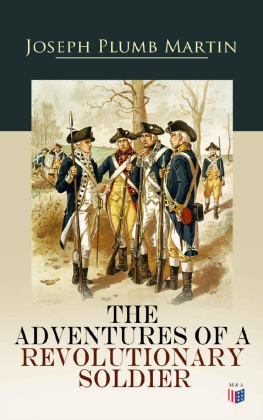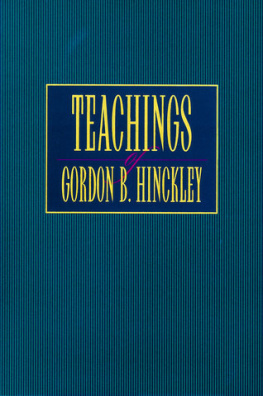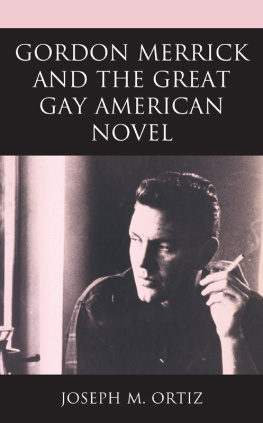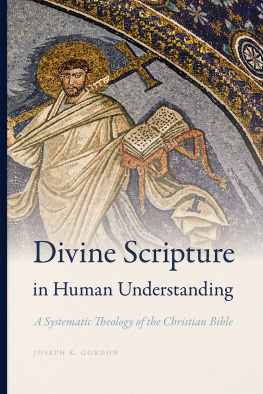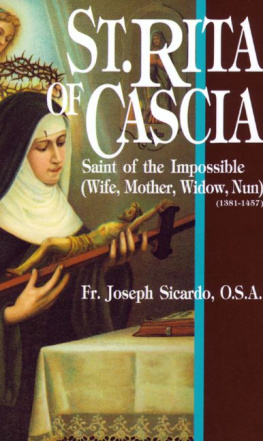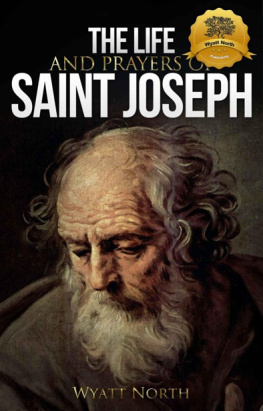PREFACE.
Nothing but the greatest possible pressure from my many kind friends who have heard my lecture on General Gordon: Saint and Soldier, who knew of my intimacy with him, and had seen some of the letters referred to, would have induced me to narrate this little story of a noble life. I am greatly indebted to many friends, authors, and newspapers, for extracts and incidents, etc., etc.; and to them I beg to offer my best thanks and humble apology. This book is issued in the hope, that, with all its imperfections, it may inspire the young men of our times to imitate the Christ-like spirit and example of our illustrious and noble hero, C. G. Gordon.
J. Wardle .
THIS BRIEF STORY
of a
NOBLE, SAINTLY and HEROIC LIFE,
I Dedicate with Much Affection
To My Son ,
JOSEPH GORDON WARDLE
If I am asked, who is the greatest man? I answer, the best. And if I am requested to say, who is the best, I reply: he that deserveth most of his fellow creatures.
Sir William Jones.
INDEX.
Chapter I.IntroductionGordons birth, parentage and schoolHis first experience of warfare in the CrimeaHis display of exceptional soldierly qualitiesThe storming of Sebastopol and its fall.
Chapter II.Gordon assisting to lay down frontiers in Russia, Turkey and ArmeniaGordon in ChinaBurning of the Summer PalaceChinese rebellion and its suppression.
Chapter III.Gordon at ManchesterMy experiences with himRagged School workAmongst the poor, the old, the sickSome of his letters to me, showing his deep solicitude for the lads.
Chapter IV.Gordons lettersLeaflet, &c.His work at GravesendAmongst his KingsHis call to foreign service, and leave takingThe public regret.
Chapter V.His first appointment as Governor General of the SoudanHis journey to, and his arrival at KhartoumHis many difficultiesHis visit to King John of Abyssinia, and resignation.
Chapter VI.Gordons return to Egypt and welcome by the KhediveHome againA second visit to ChinaSoudan very unsettledThe Madhi winning battlesHicks Pashas army annihilatedGordon sent for; agrees again to go to Khartoum.
Chapter VII.Gordons starting for Khartoum (2nd appointment)His arrival and receptionKhartoum surroundedLetter from the Madhi to GordonGordons replyHis many and severe trials in Khartoum.
Chapter VIII.Expedition of Lord Wolseleys to relieve GordonTerrible marches in the desertBattle of Abu-KleaColonel Burnaby killedAwful scenesThe Arabs break the British SquareVictory and march to Mettemmeh.
Chapter IX.Gordons Boats, manned by Sir Charles Wilson, fighting up to KhartoumKhartoum fallenGordon a martyrMourning in all landsOur Queens letter of complaint to GladstoneGladstones reply and vindicationQueens letters to Gordons sisterAccount of the fall of KhartoumAcceptance by the Queen of Gordons Bible.
CHAPTER I.
There is nothing purer than honesty; nothing sweeter than charity; nothing warmer than love; nothing richer than wisdom; nothing brighter than virtue; nothing more steadfast than faith.Bacon.
It has been said that the most interesting study for mankind is man; and surely one of the grandest objects for human contemplation, is a noble character; a lofty type of a truly great and good man is humanitys richest heritage.
The following lines by one of our greatest poets are true
Lives of great men all remind us,
We can make our lives sublime,
And departing leave behind us,
Footprints on the sands of time.
While places and things may have a special or peculiar charm, and indeed may become very interesting, nothing stirs our hearts, or rouses our enthusiasm so much as the study of a noble heroic life, such as that of the uncrowned king, who is the subject of our story, and whose career of unsullied splendour closed in the year 1885 in the beleaguered capital of that dark sad land, where the White and Blue Nile blend their waters.
Noble he was contemning all things mean,
His truth unquestioned and his soul severe,
At no mans question was he eer dismayed,
Of no mans presence was he eer afraid.
General Gordon was the son of a soldier who proved his gallantry on many occasions, and who took a pride in his profession. It was said of him that he was greatly beloved by all who served under him. He was generous, genial and kind hearted, and strictly just in all his practices and aims. He gave to his Queen and country a long life of devoted service. His wife, we are told, was a woman of marked liberality; cheerful and loving, always thoughtful of the wants of others; completely devoid of selfishness.
The fourth son, and third soldier of this happy pair, Charles George, was born at Woolwich in 1833. He was trained at Taunton. When about 15 years of age he was sent to the Royal Military Academy at Woolwich, to prepare for the army; aprofession his father thought most worthy of the Gordons. While here at school an incident occurred which served toshow that our young hero was no ordinary student. His tutor, with an air of contempt, rebuked him severely for someerror or failure in his lessons, and told him sneeringly he would never make a general. This roused the Scotch bloodof the budding soldier, and in a rage he tore the epaulettes from his shoulders, and threw them at his tutorsfeetanother proof of the correctness of the old adage, Never prophesy unless you know. By the time he reached theage of twenty-one, he had become every inch a soldier, and when tested he proved to have all a soldiersqualitiesbravery, courage, heroism, patriotism, and fidelity, characteristics of the best soldiers in our army.
Archibald Forbes, writing of him, says The character of General Gordon was unique. As it unfolded in its curiously varied but never contradictory aspects, you are reminded of Cromwell, of Havelock, of Livingstone, and of Captain Hedley Viccars. But Gordons individuality stood out in its incomparable blending of masterfulness and tenderness, of strength and sweetness. His high and noble nature was made more chivalrous by his fervent, deep and real piety. His absolute trust in God guided him serenely through the greatest difficulties. Because of that he was not alone in the deepest solitude. He was not depressed in the direst extremity. He had learned the happy art of leaning upon the Omnipotent arm.
Early in 1884 a leading newspaper said of him, General Gordon is without doubt the finest captain of irregular forces living. About the same time Mr. Gladstone said of him, General Gordon is no common man. It is no exaggeration to say he is a hero. It is no exaggeration to say he is a Christian hero. Mr. W. E. Forster also remarked of him, I know no other man living for whom I have a greater admiration than General Gordon. He is utterly unselfish. He is regardless of money. He cares nothing for fame or glory. He cares little for life or death. He is a deeply religious man. The world to come, and Gods government over this, are to him the greatest of lifes realities. True heroism has been said to be a sacrifice of self for the benefit of others. If this is true, Gordon has well won the appellation, The Hero of the Soudan. His soldierly qualities were first tested in the Crimea, where we find him in 1854 and 1855. Here for the first time in his military career he was brought face to face with all the horrors of actual war, and here for the first time he saw friend and foe lie locked like brothers in each others arms. Here he got his first baptism of fire; and here he showed the splendid qualities which in after years made him so famous and so beloved. An old soldier who served under him during this terrible campaign says I shall never forget that remarkable figure and form, which was an inspiration to all who knew him, and saw him on the field of carnage and blood.



